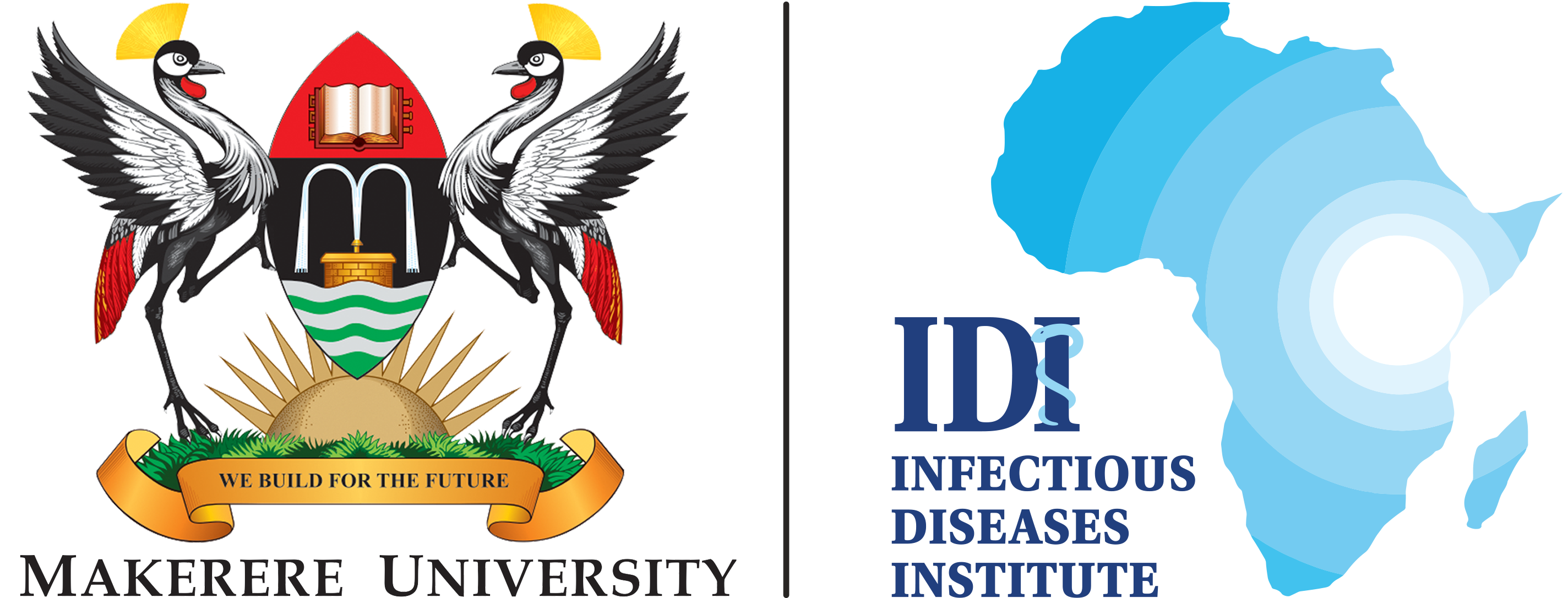- Associated Links
-
-
Our united network of partners and institutions share a vision for excellence, innovation, and impact. Together, we harness our combined strengths to create meaningful change.
-
-
-
- Careers
-
-
Our people are our greatest asset. We foster a thriving environment where everyone can flourish and make a difference. Join us in driving innovation and positive change through fulfilling career opportunities.
-
-
PROJECTS
When people are healthy, communities thrive. Our projects are specially designed to save lives and eliminate the burden of infectious diseases while helping governments across Africa create sustainable health systems.
We operate six programmes, each with multiple projects in 92% of Uganda’s districts and strategic partnerships in 23 African countries and nine others worldwide. Our work is powered by an over 3,000 innovative team of science, business, and technical experts.
Research
Global Health Security
Health Systems Strengthening
Training and Capacity building
Research

SCALE-IT
The Scaling Up Capacity to Support Conduct of Clinical Trials in The East African Community (SCALE-IT) project, hosted at IDI, aims to improve research capacity in East Africa. It focuses on enhancing protocol review and oversight, adhering to international standards. A consortium of researchers from the East African Community, in collaboration with European partners, implements the project. The East African Health Research Commission coordinates and disseminates results.
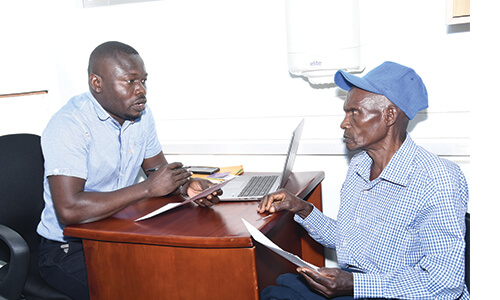
COMMIT-Africa
The COMMIT-Africa Project is a regional initiative focusing on integrating mental health care with tuberculosis (TB) treatment across four African countries: Uganda, Tanzania, Zimbabwe, and South Africa. The USAID-funded project aims to develop culturally acceptable tools for integrating mental health services into TB care. The goal is to improve treatment outcomes and address the high burden of TB and related mental health issues in these regions.

CAMO-Net
The Centres for Antimicrobial Optimisation Network (CAMO-Net) is a global initiative aimed at addressing the critical issue of antimicrobial resistance (AMR) and optimizing the use of antimicrobials in human health. Funded by Wellcome, this multidisciplinary collaboration involves various academic and research institutions across different countries, including the University of Liverpool, Imperial College London, the University of Cape Town, and the Infectious Diseases Institute (IDI) in Uganda.
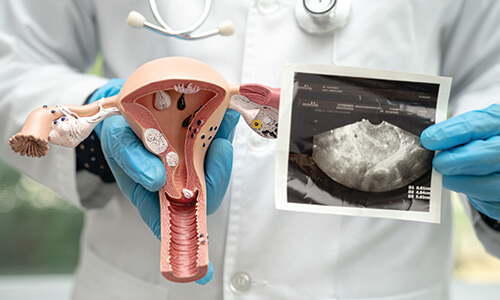
ICCPP
The Integrated Cervical Cancer Prevention Program (ICCPP) is a comprehensive initiative aimed at reducing the incidence and mortality of cervical cancer, particularly in low—and middle-income countries where the burden of this disease is highest. This program emphasizes a multifaceted approach that includes vaccination, screening, treatment, and community engagement.

eLwazi
The eLwazi Open Data Science Platform (ODSP) is an innovative initiative based in Uganda, designed to enhance data science capabilities across Africa, particularly in the health sector. This platform is part of a broader effort under the DS-I Africa Initiative, which aims to harness data science for health discovery and innovation.
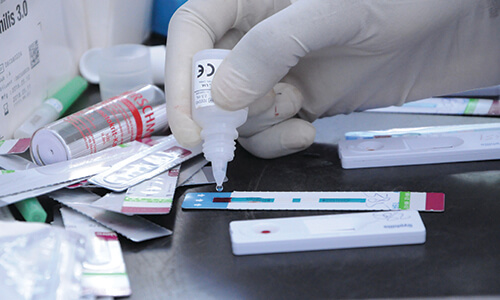
EnACT trial
The EnACT trial is a pivotal clinical study focused on evaluating MAT2203, an oral formulation of amphotericin B, for the treatment of cryptococcal meningitis in HIV-infected patients. This trial is significant as it aims to improve treatment options for a condition that poses a serious health risk to this population.
Global Health Security
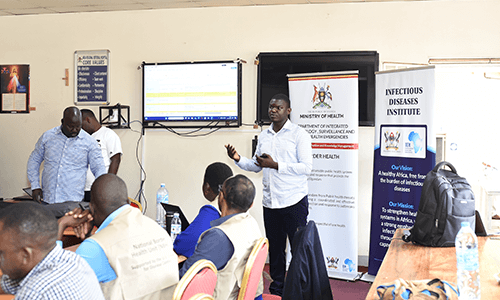
IHR Project
The CDC Strengthening Partnerships for Preparedness and Response in Uganda project aims to improve health security and build International Health Regulations (IHR) capacity. Key achievements include establishing public health emergency operation centres, enhancing disease surveillance, and supporting COVID-19 vaccination efforts, ultimately strengthening Uganda’s health systems.

Fleming Fund Grant
The Fleming Fund Grant aims to strengthen antimicrobial resistance (AMR) surveillance in Uganda through microbiology laboratory upgrades and data systems using a One Health approach. Key achievements include enhancing laboratory infrastructure, developing governance structures, and training healthcare workers to improve AMR detection and response capabilities.
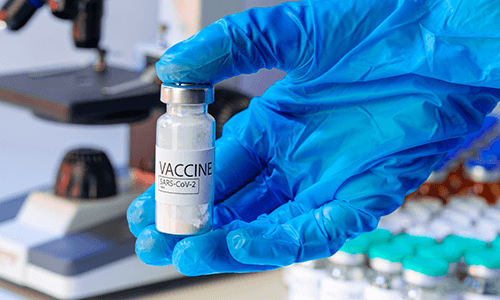
Saving Lives and Livelihoods
The Saving Lives and Livelihoods Programme’s PROVE initiative aims to research vaccine effectiveness in 15 African countries while strengthening National Public Health Institutes for outbreak research. Key achievements include protocol adoption in 12 countries, training investigators, and fostering collaborations across Africa to enhance public health response.

NAPHS project
The National Action Plan for Health Security (NAPHS) project, funded by Resolve to Save Lives, aims to ensure compliance with the International Health Regulations in Uganda. Key achievements include launching the NAPHS, amending the Public Health Act, and enhancing multi-hazard preparedness frameworks for effective health security.
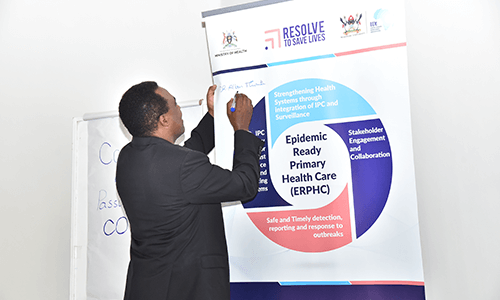
EPRHC project
The Epidemic Ready Primary Health Care (EPRHC) project, funded by Resolve to Save Lives, aims to enhance the detection and reporting of public health events through improved surveillance and infection prevention systems. Key achievements include launching the project, developing implementation documents, and training over 170 mentors across Uganda.
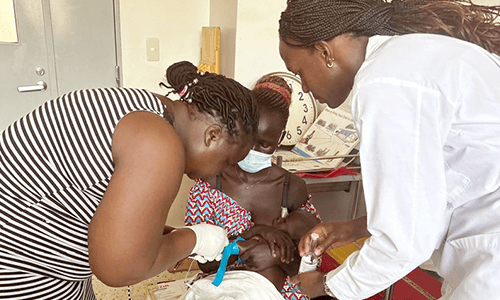
NISS Project
The National Integrated Sentinel Surveillance (NISS) project focuses on Acute Febrile Illness (AFI) surveillance in Uganda’s regional referral and district hospitals. Funded by the US CDC, key achievements include protocol approvals, training for healthcare workers, initiating pilot surveillance, and developing an electronic data management system.

AMR Project
The Strengthening National Surveillance Systems for Antimicrobial Resistance project, funded by the US CDC, aims to enhance Health Care Acquired Infection surveillance in Uganda’s Regional Referral Hospitals. Key achievements include developing a Surgical Site Infection protocol, digitizing data collection tools, and conducting readiness assessments across six hospitals.
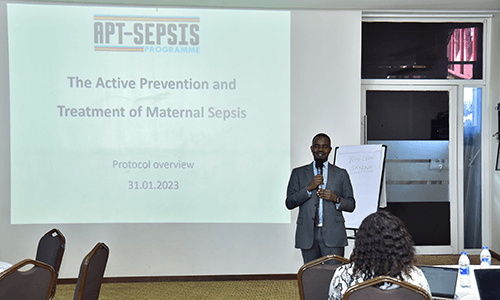
APT-Sepsis
Funded by the Wellcome Trust, the Active Prevention and Treatment of Maternal Sepsis (APT-Sepsis) project aims to reduce infection-related maternal mortality and severe morbidity in Uganda. Key achievements include conducting feasibility assessments at 38 sites, training 64 research assistants, and ensuring real-time data reporting across all sites.
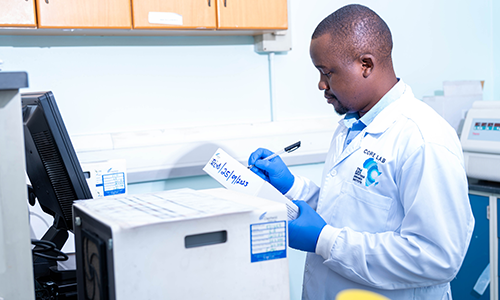
Yellow Fever Campaign
The Yellow Fever Mass Vaccination Campaign (YVMVC), funded by GAVI through the Ministry of Health, aims to roll out yellow fever vaccinations in North Western Uganda, particularly targeting refugee populations. Key achievements include supporting the Ministry to achieve a 72.5% vaccination coverage and ensuring timely fund accountability.
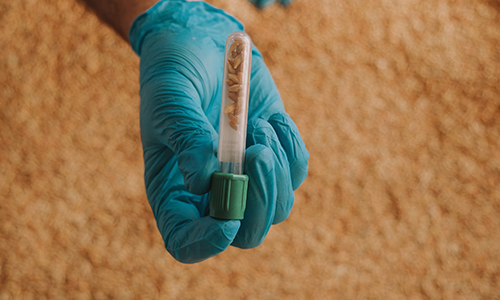
ACESO
Funded by the US Department of Defence, the Austere Environments Consortium for Enhanced Sepsis Outcomes (ACESO) aims to enhance clinical capabilities for emerging disease intervention and filovirus research during outbreaks. Key achievements include recruiting 43 participants for a sepsis study, training research staff, and effectively processing microbiology samples.
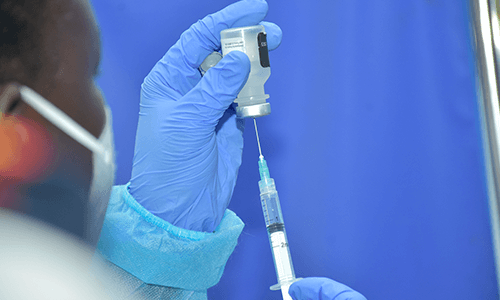
COVID-19 Vaccination
The COVID-19 Vaccination Action Network (VAN), funded by the Rockefeller Foundation through AMREF Health Africa, aims to enhance social mobilization for COVID-19 vaccination in five health sub-districts of Wakiso District, Uganda. Key achievements include training 1,968 vaccination champions and conducting 1,198 community drives to boost vaccine demand.

EGASP
The Enhanced Gonococcal Antimicrobial Resistance Surveillance (EGASP) project, funded by the WHO, aims to strengthen national surveillance systems for Neisseria gonorrhoeae antimicrobial resistance and genomic epidemiology. Key achievements include identifying four sentinel sites, training 16 healthcare workers, and processing 407 gonorrhoea isolates for genomic analysis.
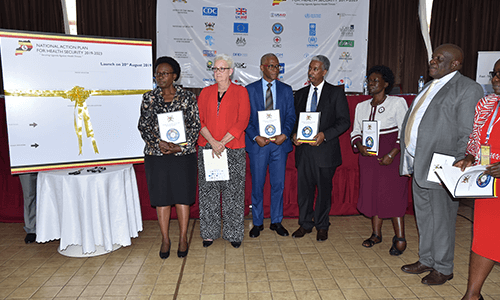
7-1-7 Project
The 7-1-7 Timeliness and Enhanced Situational Awareness (ESA) project, funded by Resolve to Save Lives, aims to improve outbreak response by ensuring detection within 7 days, notification within 1 day, and initial response within 7 days. Key achievements include piloting the framework in Uganda and its adoption by WHO Afro.
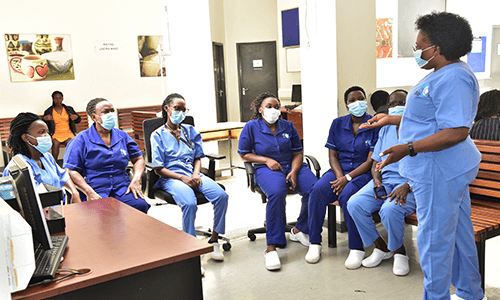
SPIRT study
The SPIRT study, funded by the Swiss National Science Foundation, aims to determine the prevalence and risk factors of leptospirosis and rickettsiosis among acute undifferentiated fever patients in Uganda. Key achievements include obtaining necessary approvals, developing a data collection system, and conducting participant recruitment at multiple health facilities.
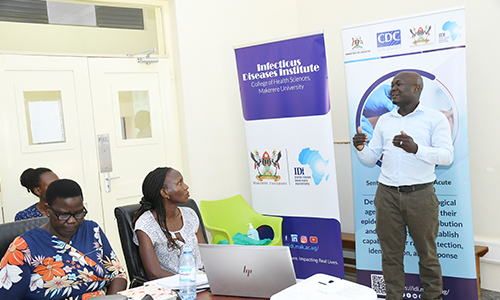
AFI-Pfizer study
Funded by Pfizer, the Current and Prior Viral Zoonotic Infections study aims to assess the prevalence of viral zoonotic infections among adults hospitalized with acute febrile illness in Northern and Central Uganda. Key achievements include recruiting 283 participants, expanding diagnostic capabilities, and supporting outbreak investigations for various infectious diseases.
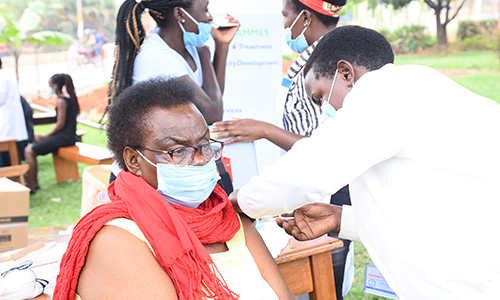
COVID-19 Test and Treat
The COVID-19 Test and Treat Implementation project, funded by the Clinton Health Access Initiative, aims to facilitate the roll-out of COVID-19 therapeutics, specifically Paxlovid (nirmatrelvir/ritonavir). Key achievements include ensuring effective logistics for Paxlovid distribution and training healthcare workers in pharmacovigilance across Uganda.
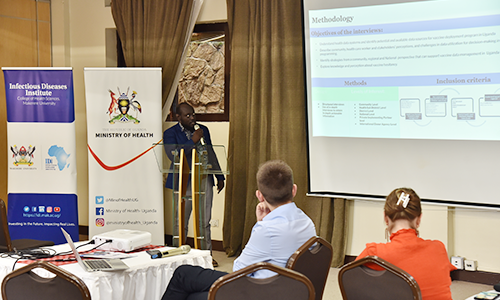
Vaccine Data Co-Lab
The Vaccine Data Co-Lab, funded by the UK Foreign Commonwealth and Development Office, aims to enhance Uganda’s immunization programming through hyperlocal data utilization. Key achievements include coordinating three grantees, facilitating cross-learning meetings, adopting a data visualization dashboard, and implementing Smart Paper Technology in 17 facilities.
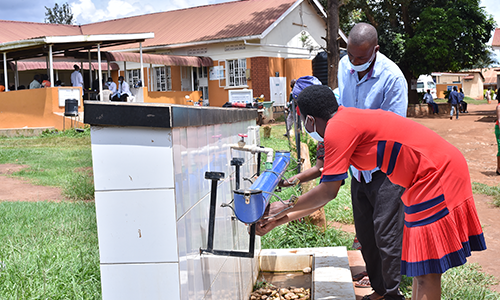
WASH in Health Care Facilities
The Water, Sanitation, and Hygiene (WASH) in Health Care Facilities project, funded by the National Foundation for the US CDC, aims to assess WASH conditions in Kabarole District’s healthcare facilities. Key achievements include developing and piloting environmental cleaning SOPs, maintaining rainwater harvesting systems, and completing a district-wide WASH assessment.
Health Systems Strengthening
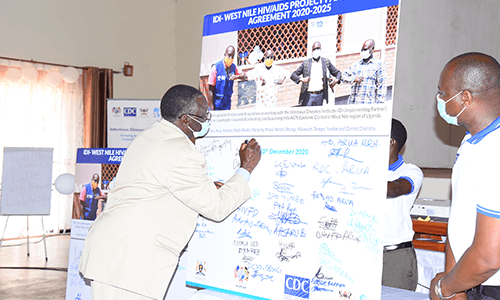
CDC – West Nile HIV Project
The West Nile Comprehensive HIV Project, funded by the US CDC, aims to control HIV in Uganda’s West Nile region by optimizing interventions to meet UNAIDS targets and strengthening local capacities. The project serves a population of 3.5 million, including refugees.
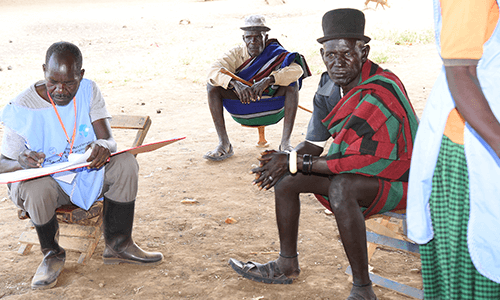
USAID PACT Karamoja
In January 2020, IDI began a five-year project (USAID Program for Accelerated Control of Tuberculosis in Karamoja) to enhance tuberculosis (TB) detection and treatment in the Karamoja region. The program aims to strengthen health systems and achieve a 90% treatment success rate by 2025.
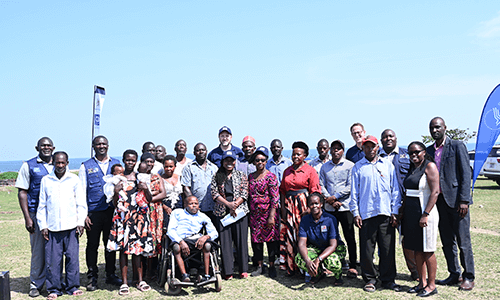
CDC – Masaka-Wakiso HIV Project
Covering 13 districts and one city, the project aims to achieve and sustain HIV and TB epidemic control in Uganda’s Masaka-Wakiso region by 2028. It focuses on enhancing access to quality healthcare services, strengthening health information systems, and empowering local stakeholders through innovative interventions.
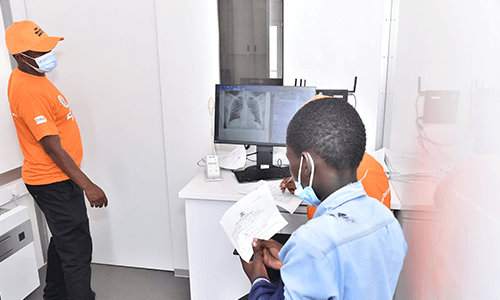
USAID LPHS-TB Activity
The USAID Local Partner Health Services- TB Activity (LPHS-TBA) is a five-year initiative aimed at reducing Uganda’s TB burden by 2026. It focuses on scaling evidence-based interventions to achieve 90% treatment coverage, enhancing TB screening, initiating treatment for all diagnosed patients, and strengthening health systems nationwide.
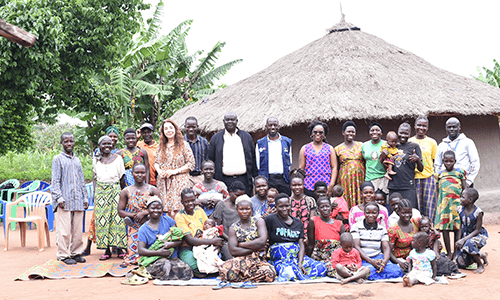
USAID OVC-IR Activity
USAID’s Orphans and Vulnerable Children Inter-Regional Activity (USAID’s OVC-IRA) is a five-year initiative to prevent new HIV infections and reduce vulnerability among orphans, vulnerable children, and adolescent girls and young women in Uganda. It supports the government’s strategies for HIV mitigation and improves access to sexual reproductive health services.
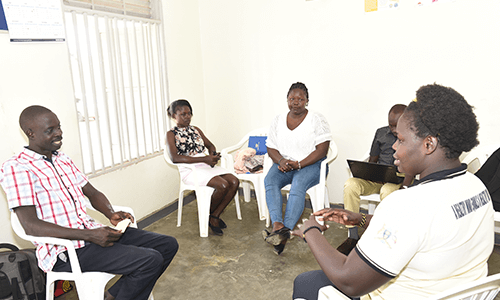
CDC KP CSO Mechanism
The National KP CSO Above Site Mechanism, funded by PEPFAR/CDC, aims to reduce new HIV infections and enhance the quality of life for HIV-infected Key Populations (KPs) by 2025. It strengthens KP CSOs and Drop-in centres to provide comprehensive HIV services across 13 regions.
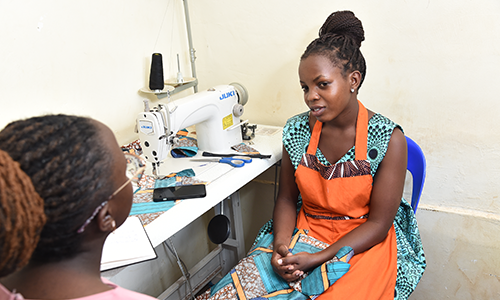
DREAMS PROGRAMME
The CDC DREAMS Programme aims to reduce HIV infections among adolescent girls and young women in Uganda. This initiative focuses on providing comprehensive support, including education, health services, and economic empowerment, to address the multifaceted challenges these populations face.
Training and Capacity building
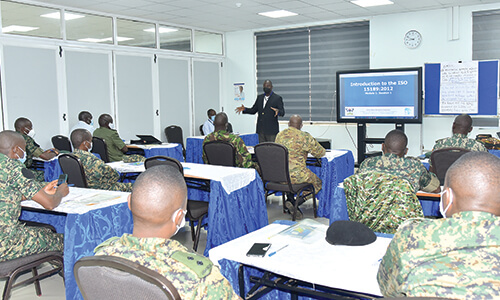
DHAPP
The Department of Defense HIV/AIDS Prevention Program (DHAPP) is a critical initiative aimed at combating the HIV/AIDS epidemic, particularly within military populations in various countries. This program operates under the broader framework of the President’s Emergency Plan for AIDS Relief (PEPFAR) and focuses on saving lives by preventing new HIV infections and accelerating efforts toward epidemic control in military settings.
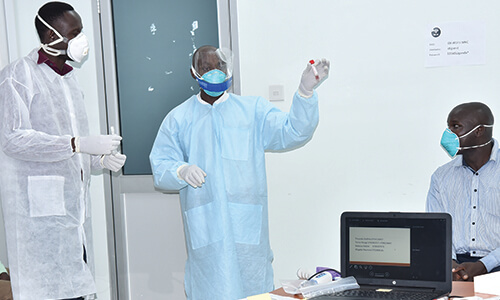
ANC/ICCM/COVID-19
The ANC/ICCM/COVID-19 Sero-prevalence study, funded by the US CDC, aimed to enhance Infection Prevention and Control among VHTs in Moyo and Adjumani districts from 2020-2021. Key achievements included training VHTs, providing essential supplies, and ensuring safe community case management during the COVID-19 pandemic.
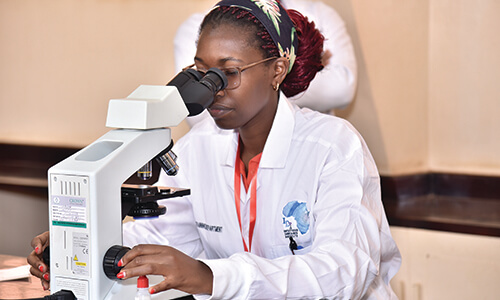
MAPD
The USAID Malaria Action Program for Districts (MAPD), funded by USAID/Uganda, operated in 53 districts from 2016 to 2021. Focused on reducing malaria morbidity and mortality, especially among women and children, MAPD achieved a significant decline in malaria prevalence from 19% in 2016 to 9% in 2021.
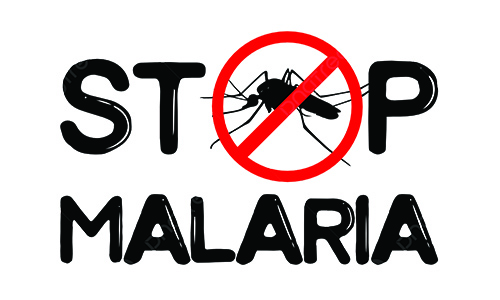
Stop Malaria Project
The Stop Malaria Project, funded by USAID/President’s Malaria Initiative, operated in 34 districts across Uganda from 2008 to 2014. Implemented by IDI and partners, it aimed to enhance malaria diagnosis and treatment, achieving a 93% accuracy rate in blood slide readings and training 1,824 laboratory staff.

JUMP
The Joint Uganda Malaria Training Program (JUMP), funded by ExxonMobil/Accordia, aimed to enhance malaria training across Rukungiri, Arua, Nebbi, and Kasese. Key achievements included revising the curriculum, training 30 Master Malaria Trainers, and supporting 151 health workers in implementing improved malaria practices.
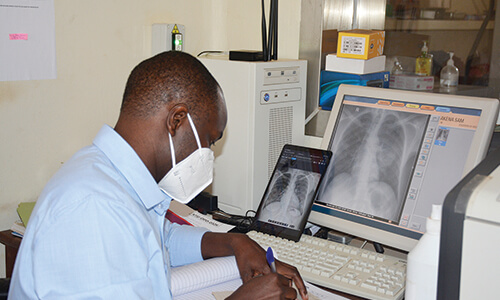
Becton/ACCORDIA Scholarship
The Becton Dickinson (BD) Scholarship Fund, funded by Becton Dickinson and ACCORDIA, aimed to enhance laboratory training in Uganda and Africa. Key achievements included developing three curricula, training over 300 trainees, and providing support to the BD-PEPFAR program, the Ministry of Health, and the US CDC.

